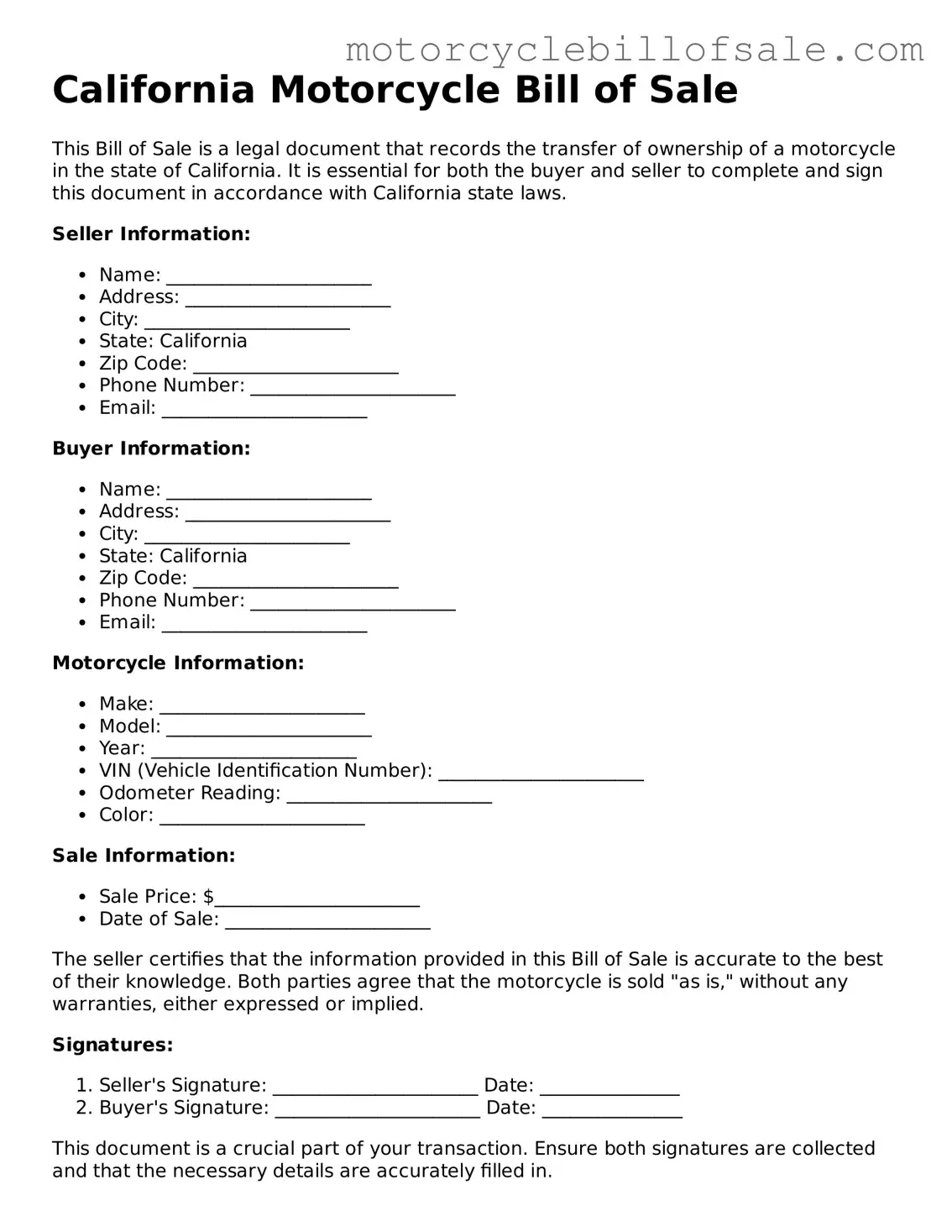Common mistakes
Filling out the California Motorcycle Bill of Sale form can seem straightforward, but individuals often make several common mistakes that can lead to complications. One frequent error is failing to provide accurate vehicle identification information. This includes not only the motorcycle's VIN but also details such as the make, model, and year. Inaccurate information can create issues during registration or when transferring ownership.
Another mistake involves the omission of the seller's and buyer's information. Both parties must provide their full names and addresses. Neglecting to include this information can result in difficulties in proving ownership or in future transactions.
Additionally, many individuals forget to include the sale price. The bill of sale should clearly state the amount for which the motorcycle is being sold. This figure is crucial for tax purposes and can affect the buyer's ability to register the motorcycle.
People also sometimes overlook the need for signatures. Both the seller and the buyer must sign the document to validate the transaction. Without these signatures, the bill of sale may not be considered legally binding.
In some cases, individuals fail to date the bill of sale. The date of the transaction is essential for establishing the timeline of ownership. Without a date, it may be challenging to resolve any disputes that arise later.
Another common error is not providing a clear description of the motorcycle's condition. Buyers should be informed about any existing damage or mechanical issues. A vague description can lead to misunderstandings and disputes after the sale.
Some people mistakenly assume that a bill of sale is not necessary if the motorcycle is a gift. However, even in such cases, a bill of sale can serve as proof of the transfer of ownership and is advisable to avoid future complications.
Lastly, individuals often do not keep a copy of the completed bill of sale for their records. Retaining a copy is important for both the buyer and the seller, as it serves as documentation of the transaction and can be useful in case of future disputes or questions regarding ownership.
